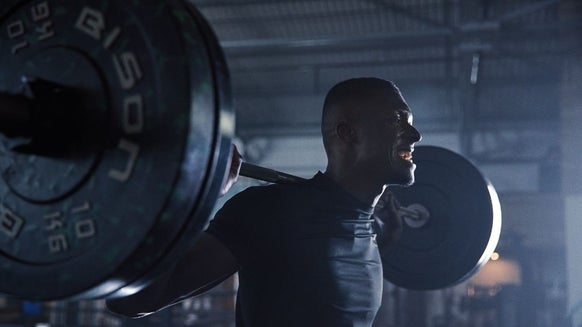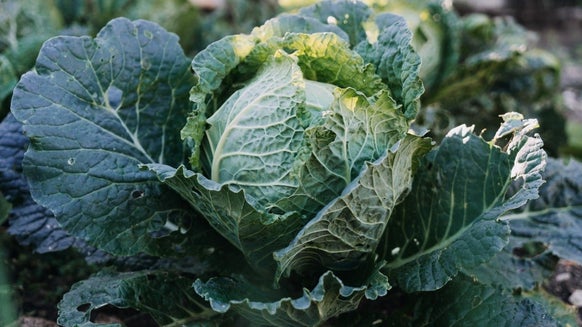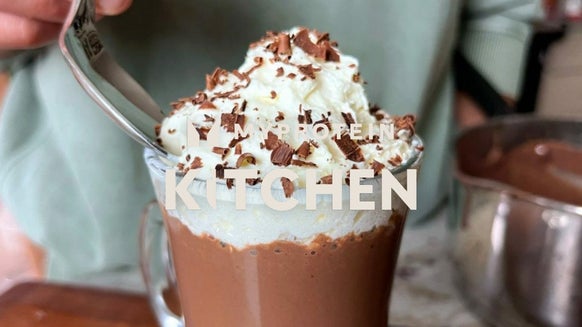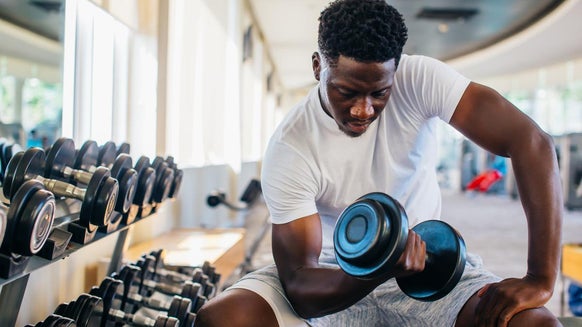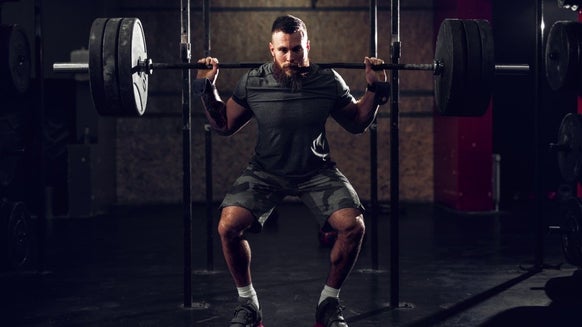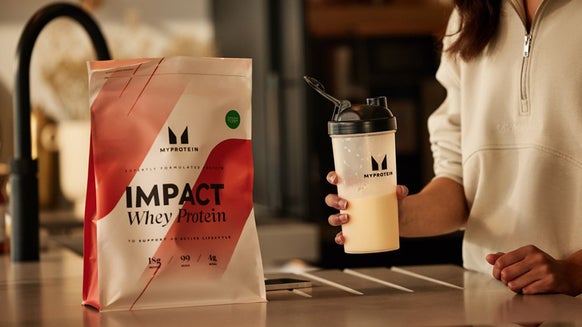At-Home Athletes | Perfect Your Performance Diet With This Expert’s Help

It looks like we’re destined to be training in our homes for the foreseeable future so we wanted to set ourselves, and you, a challenge: becoming a better athlete.
Over the course of the next few weeks, we’re going to be covering the various domains of health a professional athlete will focus on such as diet, training, sleep, stress management and goal setting.
We want to help you become the healthiest, happiest, most athletic version of you yet. We aim to help you achieve that with our “At home Athletes” series.
To kick things off we’ll be discussing everyone’s favourite, your diet.

Fuelling ourselves for improved strength and performance
An athlete’s diet should be diverse and well rounded, complimenting their efforts in training through adequate fuelling and aiding them to recover and adapt.
The first consideration you should make is to avoid deficiencies. A diet which fails to meet these basic requirements will hamper not only your athletic performance but your overall health.1
A predominantly plant-based diet is a simple approach to achieve this and has been shown to be of higher nutrient quality.2 Complimenting with animal sources can be helpful for non-vegans as these are packed full of nutrients themselves. Dairy products are one such food group an athlete should consider consuming more of as it’s one of the best dietary sources of high-quality protein.3
Protein
Speaking of protein, it should be the next big focus for an athlete. Achieving adequate protein intake is critically important for muscular repair and adaptation.4 This in turn allows for your muscle to adapt to exercise and leads to improvements in strength and performance. In fact, higher protein diets have been directly shown to improve strength and performance.4 It’s recommended that an athlete should consume between 1.4 to 2g of protein per kg of bodyweight a day.
Vegans and or those who don’t consume many animal-based protein sources should consider combining multiple plant-based sources. Plant sources are described as low-quality, simply because they tend to lack all of the essential amino acids — combining multiple sources can easily solve this issue.
Having a high-quality source of protein pre- or post-exercise can fire up muscle protein synthesis, accelerate your recovery and fuel adaptation.4 Whey protein (or a vegan alternative) powder would be fantastic here as it’s more easily digestible and absorbs more rapidly comparative to other protein sources.5
Energy intake
Eating enough to fuel performance is incredibly important too. Our advice would be to figure out maintenance calorie intake (using an online calculator) and then between 2.5% to 5% on top of this to ensure you’re having enough food to perform and adequately recover.
Researchers recommended we increase our food intake to between 44 – 50 kcals per kg of bodyweight when strength and performance improvements are the goal.6
The source of our energy
Athletes may want to consider increasing their carbohydrate intake as it’s the primary source of energy during exercise.7 Whilst fat can also be used (referring to those following a ketogenic diet) it may not be sustainable to practice as a lifestyle choice and takes time to adapt to (metabolically, physically, psychologically and from a practical standpoint). Fat should still be included in the diet as it is important for overall health.8 Increasing your intake of certain fats, like omega 3s, can actually assist in recovery and even improve other aspects of health, even mental health!9,10
Other considerations
Athletes may also want to consider supplementing with certain dietary elements. Vitamin D, creatine monohydrate powder and beta-alanine have all been associated with improving performance, recovery and adaptation to exercise.11,12,13
Manipulating diet for optimal body composition
Many of the dietary principles we’ve discussed for improving strength and performance will vicariously help improve body composition.
For instance, it is well established high protein diets help to increase lean muscle mass, reduce fat mass and improve overall body composition.14
This is likely due to their impact on muscle recovery and adaptation, but also possibly related to their high thermogenic property.15 There’s some really interesting research showing that you can even overconsume protein and not gain any body fat.16 Science is cool (I swear)!
Whilst carbohydrates wouldn’t be as thermogenic as protein, they are still more thermogenic than fat.17 How you train will also affect how they are stored (with preference being within muscle tissue rather than being converted to fat) via a process called “nutrient partitioning”.18
We’d advise keeping your easily digestible carbohydrates to the 60-minute window pre- and post-exercise and to consume harder to digest carbs (like grains and other more fibrous / complex carb sources) at other times.
The type of dietary in your diet may impact your body composition. One really interesting study overfed their participants with muffins (yes, muffins) injected with oil (no, not making this up).19 They found that those who had the muffin with “healthier fats” (polyunsaturated fats) increased their lean body mass whereas those who consumed the muffin with “unhealthy fats” (saturated fats) increased their visceral fat (around the midsection).
An easy way to keep on top of your fat intake is simply to limit your highly processed foods and trim your animal products of any excess fat. Plant-based foods and dark oily fish are great sources of healthy fats which may contribute to an improved body composition.
The importance of food flexibility
Often not talked about, having flexibility with your food choices as an athlete is important too.
Highly restrictive diets (in terms of food variety) can lead to nutritional deficiencies — an important concern for athletes.
However, what’s more concerning, is the role excessive restriction can have on our relationship with food and increasing the risk of developing disordered behaviours around food, health and body image.20
Athletes also appear to be at greater risk of developing these disordered health behaviours, so it would be advised to incorporate practices around food freedom and flexibility.21 Basically, remember that food isn’t everything and get out there and enjoy life!
Take home message
Eating like an athlete can be accessible for everyone and is the first step towards you still achieving progress irrespective of lockdowns. Let’s aim to get our protein intake where it should be (supplementing with a high-quality powder will help!), slightly increase our energy intake, fuel ourselves right and ensure we’re consuming a high-quality protein source in around our training session. Adding in supplements like vitamin D, omega 3s, creatine and beta-alanine can all help too.

1. Thomas, D. T., Erdman, K. A., & Burke, L. M. (2016). Position of the Academy of Nutrition and Dietetics, Dietitians of Canada, and the American College of Sports Medicine: nutrition and athletic performance. Journal of the Academy of Nutrition and Dietetics, 116(3), 501-528.
2. Clarys, P., Deliens, T., Huybrechts, I., Deriemaeker, P., Vanaelst, B., De Keyzer, W., … & Mullie, P. (2014). Comparison of nutritional quality of the vegan, vegetarian, semi-vegetarian, pesco-vegetarian and omnivorous diet. Nutrients, 6(3), 1318-1332.
3. Hoffman, J. R., & Falvo, M. J. (2004). Protein–which is best?. Journal of sports science & medicine, 3(3), 118.
4. Jäger, R., Kerksick, C. M., Campbell, B. I., Cribb, P. J., Wells, S. D., Skwiat, T. M., … & Antonio, J. (2017). International society of sports nutrition position stand: protein and exercise. Journal of the International Society of Sports Nutrition, 14(1), 1-25.
5. Hoffman, J. R., & Falvo, M. J. (2004). Protein–which is best?. Journal of sports science & medicine, 3(3), 118.
6. Stark, M., Lukaszuk, J., Prawitz, A., & Salacinski, A. (2012). Protein timing and its effects on muscular hypertrophy and strength in individuals engaged in weight-training. Journal of the International Society of Sports Nutrition, 9(1), 1-8.
7. Jäger, R., Kerksick, C. M., Campbell, B. I., Cribb, P. J., Wells, S. D., Skwiat, T. M., … & Antonio, J. (2017). International society of sports nutrition position stand: protein and exercise. Journal of the International Society of Sports Nutrition, 14(1), 1-25.
8. Lawrence, G. D. (2013). Dietary fats and health: dietary recommendations in the context of scientific evidence. Advances in nutrition, 4(3), 294-302.
9. VanDusseldorp, T. A., Escobar, K. A., Johnson, K. E., Stratton, M. T., Moriarty, T., Kerksick, C. M., … & Mermier, C. M. (2020). Impact of varying dosages of fish oil on recovery and soreness following eccentric exercise. Nutrients, 12(8), 2246.
10. Lange, K. W. (2020). Omega-3 fatty acids and mental health. Global Health Journal, 4(1), 18-30.
11. Hoffman, J., Ratamess, N., Kang, J., Mangine, G., Faigenbaum, A., & Stout, J. (2006). Effect of creatine and ß-alanine supplementation on performance and endocrine responses in strength/power athletes. International journal of sport nutrition and exercise metabolism, 16(4), 430-446.
12. Kreider, R. B., Wilborn, C. D., Taylor, L., Campbell, B., Almada, A. L., Collins, R., … & Antonio, J. (2010). ISSN exercise & sport nutrition review: research & recommendations. Journal of the international society of sports nutrition, 7(1), 1-43.
13. Shuler, F. D., Wingate, M. K., Moore, G. H., & Giangarra, C. (2012). Sports health benefits of vitamin D. Sports health, 4(6), 496-501.
14. Aragon, A. A., Schoenfeld, B. J., Wildman, R., Kleiner, S., VanDusseldorp, T., Taylor, L., … & Antonio, J. (2017). International society of sports nutrition position stand: diets and body composition. Journal of the International Society of Sports Nutrition, 14(1), 1-19.
15. Westerterp, K. R. (2004). Diet induced thermogenesis. Nutrition & metabolism, 1(1), 1-5.
16. Leaf, A., & Antonio, J. (2017). The effects of overfeeding on body composition: the role of macronutrient composition–a narrative review. International journal of exercise science, 10(8), 1275.
17. Westerterp, K. R. (2004). Diet induced thermogenesis. Nutrition & metabolism, 1(1), 1-5.
18. Horton, T. J., Drougas, H., Brachey, A., Reed, G. W., Peters, J. C., & Hill, J. O. (1995). Fat and carbohydrate overfeeding in humans: different effects on energy storage. The American journal of clinical nutrition, 62(1), 19-29.
19. Rosqvist, F., Iggman, D., Kullberg, J., Cedernaes, J., Johansson, H. E., Larsson, A., … & Risérus, U. (2014). Overfeeding polyunsaturated and saturated fat causes distinct effects on liver and visceral fat accumulation in humans. Diabetes, 63(7), 2356-2368.
20. Meule, A. (2020). The psychology of food cravings: The role of food deprivation. Current nutrition reports, 1-7.
21. Mancine, R. P., Gusfa, D. W., Moshrefi, A., & Kennedy, S. F. (2020). Prevalence of disordered eating in athletes categorized by emphasis on leanness and activity type–a systematic review. Journal of Eating Disorders, 8(1), 1-9.
